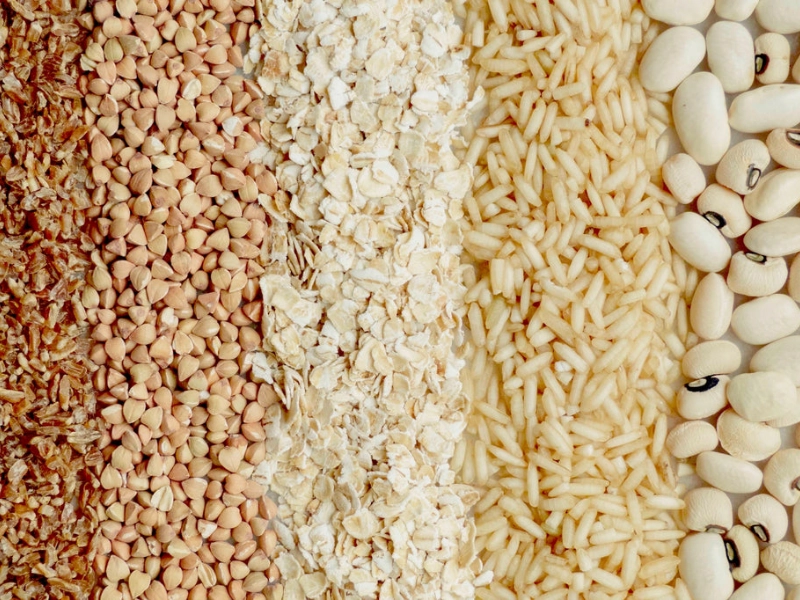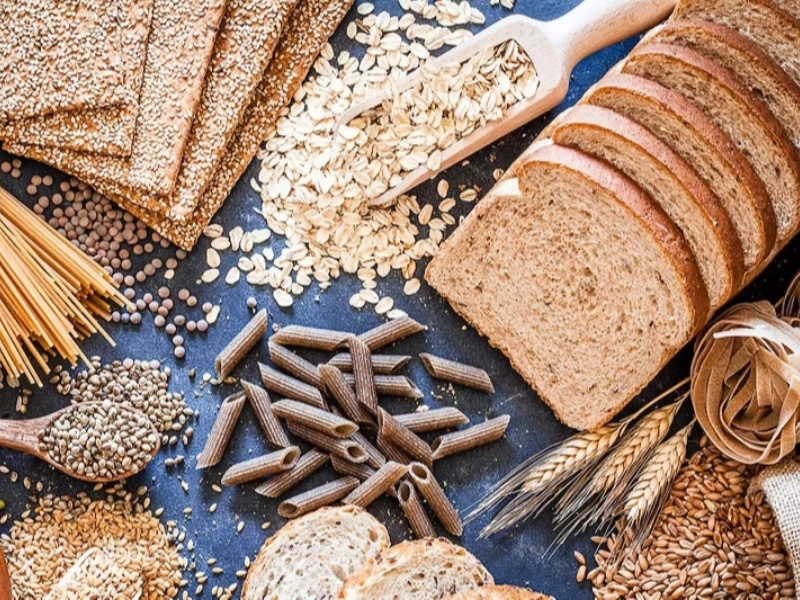Grains for Bone Health: More Than Just Calcium
When one considers bone health, calcium usually takes front stage. Still, grains are quite important for preserving healthy bones since they provide necessary minerals that support bone density and general skeletal health. Although calcium is essential, it's crucial to understand that certain minerals included in whole grains can greatly help to strengthen bones. Knowing how grains enhance bone health will enable you to choose your diet with knowledge for a stronger skeleton.
The Ingredients in Whole Grains

Magnesium's Function in Bone Maintenance
 Although it is essential for preserving bone density, magnesium is sometimes disregarded in talks of bone health. Studies show that a magnesium deficit might lower bone mineral density, therefore raising the osteoporosis and fracture risk. Excellent magnesium sources are whole grains including oats, quinoa, and brown rice.
This mineral supports bone health in concert with calcium and vitamin D. It guarantees correct use of calcium in the body by helping to control its levels, therefore guiding the production of bones. Furthermore important in preserving the strength and integrity of bones is magnesium, which helps them to develop structurally. You may properly maintain your bones by giving whole grains high magnesium top priority in your diet.
Although it is essential for preserving bone density, magnesium is sometimes disregarded in talks of bone health. Studies show that a magnesium deficit might lower bone mineral density, therefore raising the osteoporosis and fracture risk. Excellent magnesium sources are whole grains including oats, quinoa, and brown rice.
This mineral supports bone health in concert with calcium and vitamin D. It guarantees correct use of calcium in the body by helping to control its levels, therefore guiding the production of bones. Furthermore important in preserving the strength and integrity of bones is magnesium, which helps them to develop structurally. You may properly maintain your bones by giving whole grains high magnesium top priority in your diet.
Pertinence of Phosphorus
 Another vital element included in whole grains that greatly affects bone health is phosphorus. It forms hydroxyapatite, the mineral compound giving bones their strength and stiffness, alongside calcium. Perfect bone health depends on a healthy calcium to phosphorous ratio, and whole grains naturally supply this vital mineral.
Along with preserving this equilibrium, whole grains support general metabolic activity. Essential for cell activity and repair, phosphorous is involved in energy generation and forms part of DNA and RNA. Including whole wheat, barley, and millet in your diet will assist guarantee you are getting enough phosphorous to support your bones and general health.
Another vital element included in whole grains that greatly affects bone health is phosphorus. It forms hydroxyapatite, the mineral compound giving bones their strength and stiffness, alongside calcium. Perfect bone health depends on a healthy calcium to phosphorous ratio, and whole grains naturally supply this vital mineral.
Along with preserving this equilibrium, whole grains support general metabolic activity. Essential for cell activity and repair, phosphorous is involved in energy generation and forms part of DNA and RNA. Including whole wheat, barley, and millet in your diet will assist guarantee you are getting enough phosphorous to support your bones and general health.
Fiber's Effect on Bone Condition
 Although digestive health is mostly connected with fibre, it also helps to keep strong bones. Improved bone health has been connected to a high-fiber diet, especially one heavy in whole grains. Important for both controlling blood sugar levels and supporting a good weight, fibre helps lower the risk of osteoporosis by means of both.
Moreover, diets high in fibres can improve the absorption of calcium and other minerals, thereby guaranteeing that your body can make good use of the nutrients ingested. Those who might not be getting enough calcium from dairy sources especially should pay close attention to this. Including whole grains high in fibre will help you support your bone health and improve nutrient absorption.
Although digestive health is mostly connected with fibre, it also helps to keep strong bones. Improved bone health has been connected to a high-fiber diet, especially one heavy in whole grains. Important for both controlling blood sugar levels and supporting a good weight, fibre helps lower the risk of osteoporosis by means of both.
Moreover, diets high in fibres can improve the absorption of calcium and other minerals, thereby guaranteeing that your body can make good use of the nutrients ingested. Those who might not be getting enough calcium from dairy sources especially should pay close attention to this. Including whole grains high in fibre will help you support your bone health and improve nutrient absorption.
Whole Grains's Antioxidants
Rich in antioxidants as well, whole grains help fight oxidative stress and bodily inflammation. Bone health may be compromised by chronic inflammation, which can cause disorders including osteoporosis. Antioxidants help free radicals be neutralised, therefore lowering inflammation and supporting general health. Your antioxidant consumption will increase if you include whole grains including brown rice, quinoa, and oats in your diet. These grains provide vitamins and phytochemicals that encourage a good inflammatory response, therefore improving bone health. A diet high in antioxidants will improve your general health in addition to shielding your bones.
Including Grains in Your Diet
Incorporating a range of whole grains into your daily meals is crucial if you want to benefit from them for bone health. For extra nutrition, start your morning with a big bowl of muesli topped with fruits and nuts. As a side dish or basis for salads, quinoa offers a complete protein source together with important minerals. Changing the grains you use—farro, barley, brown rice, etc.—will provide diversity to your meals and increase your nutrient intake. To maximise their health advantages, think about substituting whole grains for refined grains in recipes. Making these small adjustments can help your general nutrition and bone strength be much enhanced. In essence, grains provide a multitude of nutrients that help to build stronger bones even though calcium is vital for bone health. Knowing how whole grains enhance bone health can help you make wise dietary decisions that advance general well-being and lifespan.








